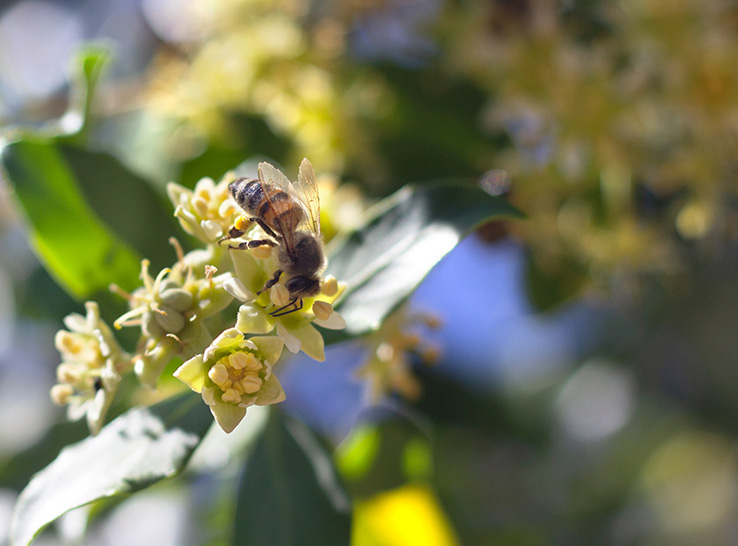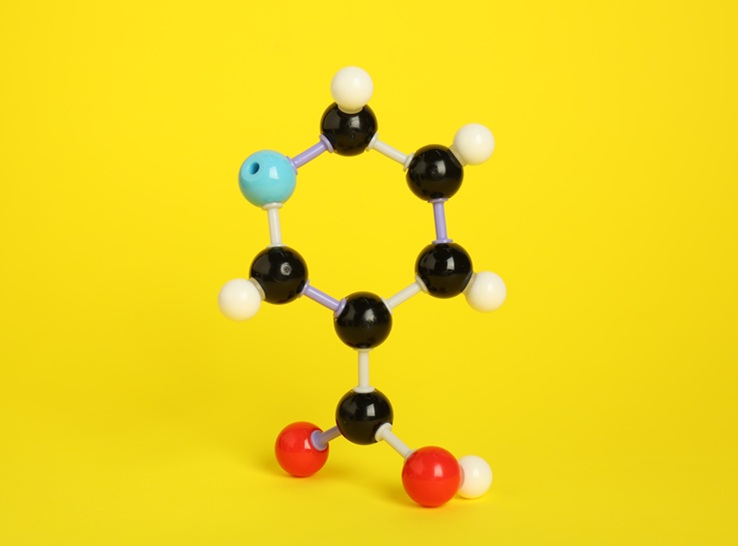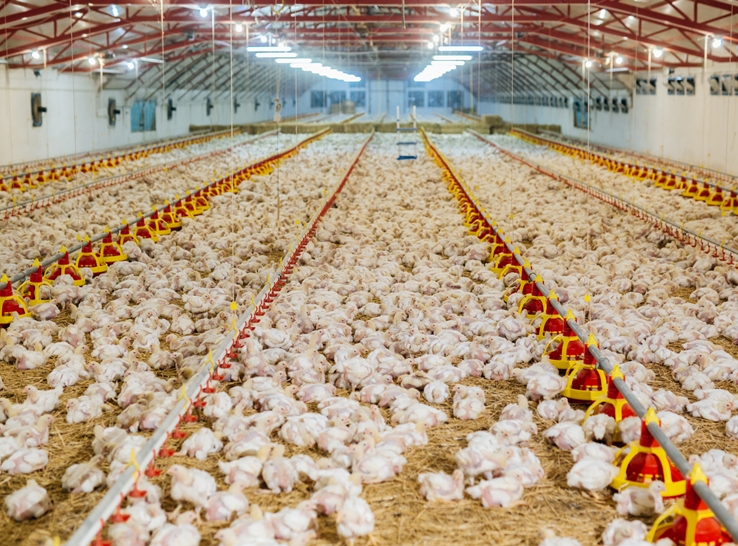Kansas State University (KSU) research has offered a glimpse of the potential of niacin supplementation in broiler diets — but questions remain about the exact benefits producers might expect from such a move.
Adequate niacin (vitamin B3) provides advantages in broiler production, including improved growth and energy and nutrient usage,1 explained Victoria Wilson, graduate student at Kansas State, at the 2025 International Poultry Scientific Forum. Nicotinamide riboside, an alternative form of the vitamin, has emerged as a novel feed additive and has been explored in in ovo feed studies with poultry,2 as well as with swine.
Niacin supplements, quantities put to test
Wilson and her team developed an experiment to explore niacin and nicotinamide riboside supplementation with a basal diet in mash form.3 In an 18-day study, they grouped 420 one-day-old Cobb broilers into five dietary treatments:
- Control diet without supplement
- Niacin at 42 mg/kg (level 1)
- Niacin at 112 mg/kg (level 2)
- Nicotinamide riboside at 42 mg/kg (level 1)
- Nicotinamide riboside at 112 mg/kg (level 2)
Wilson measured bodyweight gain and feed intake on each day of the study and assessed apparent metabolizable energy. Her team collected all excreta on days 16, 17 and 18 to be dried, subsampled and analyzed.
Potential feed-conversion boost
Based on the results of previous studies on niacin supplementation in poultry, Wilson hypothesized that the supplements would improve weight gain, feed intake and feed-conversion ratio (FCR), with an improvement in apparent metabolizable energy.
Her analysis revealed that neither niacin nor nicotinamide riboside supplementation had the predicted effects on bodyweight or feed intake; there were no significant differences or interactions based on diet.
She did observe that the supplements tended to improve FCR in the birds up to the end of the experiment at 18 days old, albeit marginally falling outside statistical significance. However, the improvement in FCR could not be explained by recorded increases in metabolizable energy, as might be expected.
“We saw no effects of apparent metabolizable energy with the inclusion of level 1 or level 2 niacin or nicotinamide riboside. There was no interaction, linear or quadratic response, and there was no difference in response between niacin or nicotinamide riboside,” Wilson said.
The results underscored that further work is needed to assess how best to use niacin supplements in broiler diets, she emphasized.
“Niacin requirements should be further evaluated in commercial conditions,” she said. “We would like to do a four-pen study with a full turn, potentially looking at pelleted diets and an increased range of niacin concentrations.”
1 Ahmadian A, Bouyeh M, Seidavi AR. 2021. A review of the effects of niacin on broiler productivity. Worlds Poult Sci J. 77(3):589–604.
2 Maynard CJ, Gonzalez JM, Haginouchi T, Ellis OG, Jackson AR, Owens CM. 2024. Effects of nicotinamide riboside in ovo feeding on high-yield broiler performance, meat quality, and myopathy incidence. Frontiers in Physiology. 15:1397442.
3 Wilson V, Gonzalez J, Beyer S, Otott H, Paulk C, Minson CD, Engnell M, Friesen W, Lopez D, Blomme A. 2025. Niacin and nicotinamide riboside supplementation effects on broiler growth performance and apparent metabolizable energy. International Poultry Scientific Forum 2025; Atlanta, Ga.




